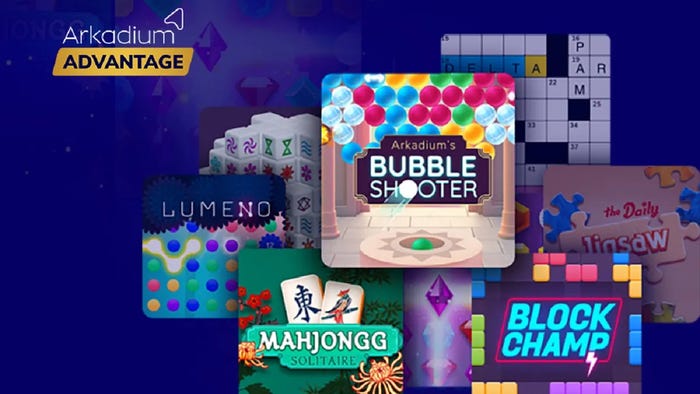
Featured Blog | This community-written post highlights the best of what the game industry has to offer. Read more like it on the Game Developer Blogs.
As the incubator teams prepare for GDC & elevator pitches, I wonder how people decide what to share about their game, and how much they decide to hold back. I talk about larger structures that promote censorship in both the game industry and research.

This post has been cross-posted on www.executionlabs.com
I’ve been thinking about self-censorship in the game industry lately. This is for a few reasons.
A developer friend was asked to write an article comparing his experiences working in one sector of the industry versus another. Given that he’s still doing business with publishers in his old sector, and receiving a paycheque from his employer in the new sector, he faces a dilemma: “Do I write a full tell-all? Or do I leave things out, so as not to burn any bridges?”. I suspect that every postmortem writer struggles with similar issues, wanting to vent about everything that went wrong, but realizing that an honest postmortem can result in job loss.
I’ve been struggling with similar issues both in my own role as a researcher and as someone asked to blog about life inside a games incubator. In the incubator, I’m constantly reminded that a developer’s success, especially if they are creating mobile games, is partially reliant on how visible they are. Thus, blogging about what teams are doing promotes their studios. My actual attempt to do this was a misfire, relegated now to the scrapheap. But this got me thinking about secrecy in the game industry as a whole, both on the part of researchers and on part of developers themselves. (And no, I don't care about the press wanting more information on game release details).
Exchanging Silence for Access
In terms of academic work, researchers self-censor their discussions about the game industry in exchange for data and access. What we can research and write about is limited by fears that we may say too much. We sign NDAs to allay fears that we’d leak details of release dates, budgets, and technologies to competitors; or that our critiques of manufacturers, publishers, and distributors might compromise future partnerships. We also promise not to divulge details like budgets and waning profits that might scare potential investors and employees. We also want to shield people from any potential fallout that may arise from what we write.
What this means is even the most general details about what game development actually looks like, such as the name of the studio or the type of game created, must be obscured and hidden in published work. From a legal and an ethical perspective, this anonymization makes sense. But I personally wonder if some of the negative issues that plague the industry (i.e. crunch, or the perceived failures of game development programs to prepare students for actual development work) might be related to these trade-offs. I’m in the rare position not to have an NDA, and haven’t ever been asked to self-edit, but there are strong ethical reasons to anonymize my data, like protecting the identities of my research partners (and not linking them to any half-baked blog post). But I struggle to decide what to share publically, what to censor, and what to ignore.
Secrecy in the Game Industry
On the side of the game industry, while individual reputation is generally linked to the studios one’s worked in and the names of games shipped, censorship is endemic. Publishers, manufacturers and studios have a vested interest in controlling the release of information about their products and protecting proprietary information. The large number of developers competing with each other for manufacturer and publishers’ patronage means that they accede to censorship demands or risk future contracts. Developers themselves can't mobilize because they depend on both publisher and manufacturer's good will, relying on them for access to funding, or the right to create console games. This has changed slightly with social and mobile games, but developers still rely on publishers and platform holders’ good will to gain visibility for their games.
Uncertainties about what exactly is covered by copyright, NDAs and corporate contracts means that, for fear of liability, everything is secret, from hardware, to character names, to engineering standards, to organizational structure, etc. So, how do we learn from mistakes, if we can't ever freely admit to them, or when we are open about our work, we risk getting skewered by the press, fans, publishers or investors?
Knowing when to talk versus when to shut up
I suspect that, like me, many people in the industry struggle with deciding what to share and what to censor. We talk freely with our friends and co-workers over beer, but are wary of saying anything publically that could endanger our futures. In contrast, others –Team Meat, for example—are incredibly vocal about their relationships with platform owners (and now about DRM), while post-mortems from Double Fine strike me as more “from-the-gut” than most. (Seriously, Gamasutra should put the 2005 postmortem of Psychonauts online. It's insane).
You could counter that the only people who are that open aren't at risk of losing their jobs. I don't agree, though. In their great 'Beers with Friends' talk at IGDA: Montreal last year, Capy argues that their success was rooted into talking to people on a 'natural' level, getting the game out there, and being honest about the stuff they might not have figured out yet (though this only works if the game is cool and not shitty). But in contrast, Brandon Sheffield points out the dangers of talking about a game too soon, and Brendan Sinclair gets even bleaker, talking about the toxic relationship between the press, developers, and players.
How to choose?
This is obviously a big issue, with no one-size-fits-all answer. So what I want to know is how do you figure out what should be shared and how to do it? Maybe more importantly how do you deal with something you’ve said, but now want to take back?
Read more about:
Featured BlogsAbout the Author(s)
You May Also Like









